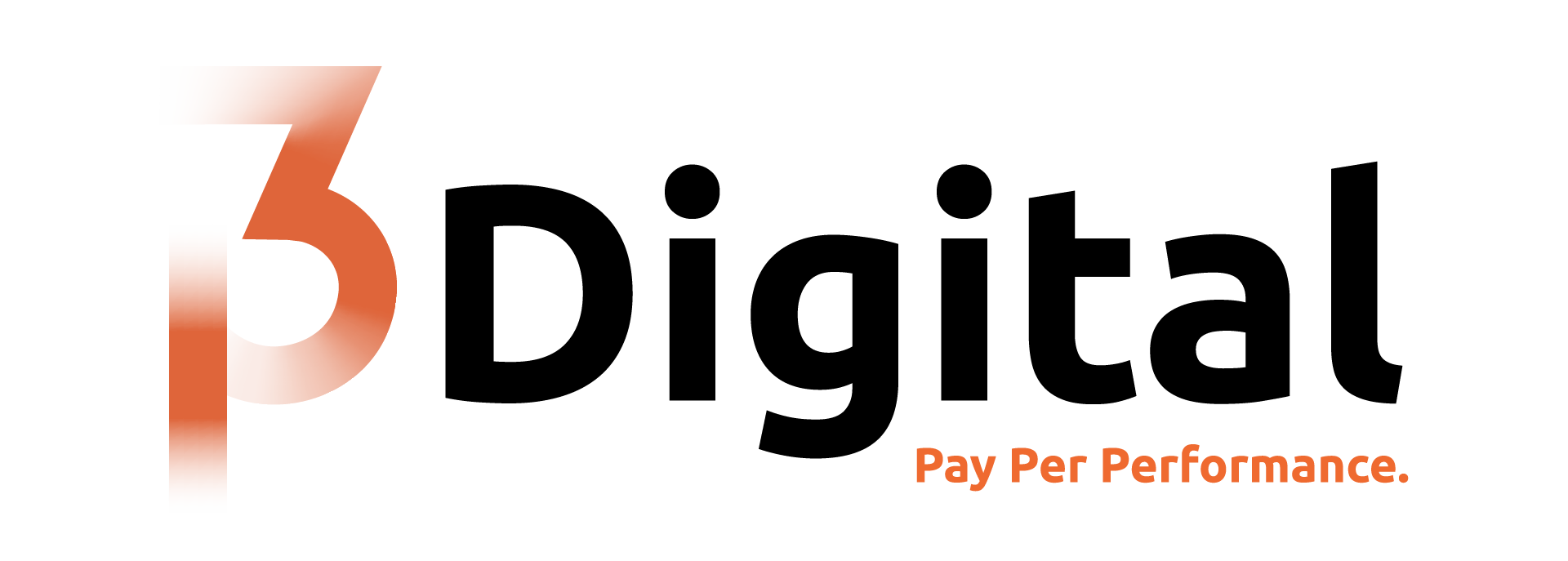At 3P Digital, we pride ourselves on delivering exceptional digital marketing strategies that align with the latest industry standards. One of the most critical factors in achieving and maintaining high search engine rankings is understanding and implementing Google’s EEAT principles: Experience, Expertise, Authoritativeness, and Trustworthiness. This guide will help you understand what EEAT is, how to implement it effectively, and the impact it will have on your SEO rankings.
Highlights:
Enhanced Author Bios
: Learn how to showcase your team’s expertise and experience effectively.
Quality Content Creation
: Discover strategies for producing comprehensive, well-researched content that engages your audience.
Building Authority and Trust
: Understand the importance of authoritative backlinks, customer reviews, and transparency to improve your SEO rankings.
What is EEAT?
EEAT stands for Experience, Expertise, Authoritativeness, and Trustworthiness. These principles are part of Google’s search quality evaluator guidelines and are crucial in determining the quality of content and its relevance to search queries.
Experience
: This refers to the firsthand experience of the content creator. Google values content created by individuals who have direct experience with the subject matter.
Expertise
: This is the knowledge and skill of the content creator. For specialized topics, having content written by experts with verifiable credentials is crucial.
Authoritativeness
: This relates to the reputation of the content creator or the website. High-quality backlinks, mentions in authoritative publications, and positive user reviews contribute to authoritativeness.
Trustworthiness
: This is the reliability and credibility of the content and the website. Clear policies, transparent business practices, and accurate information are vital for building trust.
Why is EEAT Important?
Google’s goal is to provide users with the most relevant and reliable information. By prioritizing EEAT, Google ensures that the content surfaced in search results is of high quality and trustworthy. This is especially important for YMYL (Your Money or Your Life) content, which includes topics that can significantly impact users' health, finances, or safety.
Implementing EEAT on Your Website
Implementing EEAT involves several key strategies:
Enhance Author Bios
Ensure that your content includes detailed author bios that highlight their expertise and experience. Include links to their professional profiles, such as LinkedIn, and mention any relevant credentials or industry recognition.
Create High-Quality Content
Focus on creating comprehensive, well-researched content that adds value to your audience. Use original research, case studies, and firsthand experiences to enhance credibility.
Regularly update your content to ensure it remains current and relevant.
Build Authoritative Backlinks
Aim to get backlinks from reputable websites in your industry. This can be achieved through guest blogging, partnerships, and PR efforts.
Ensure that your website is mentioned in credible industry publications and directories.
Showcase Customer Reviews and Testimonials
Display genuine customer reviews and testimonials on your website. Encourage satisfied customers to leave reviews on third-party platforms such as Google My Business, Yelp, and Trustpilot.
Maintain Transparency
Clearly state your business information, including your physical address, contact details, and privacy policies. Make it easy for users to contact you with any queries or concerns.
Ensure that your website includes detailed terms and conditions, privacy policies, and disclaimers where necessary.
Use Original Media
Incorporate original images, videos, and infographics in your content. Avoid using generic stock images as they do not demonstrate firsthand experience.
Provide captions and context for all media to enhance their relevance and impact.
Implement Strong Security Measures
Ensure that your website uses HTTPS encryption to protect user data. Display trust seals and security certifications prominently.
Regularly review and update your security practices to safeguard against threats and vulnerabilities.
Engage with Your Audience
Foster a sense of community by responding to comments and questions on your blog and social media channels. Engage with your audience to build trust and demonstrate your commitment to providing valuable information.
The Impact of EEAT on SEO Rankings
Implementing EEAT principles can significantly impact your SEO rankings in several ways:
Improved Search Rankings
Websites that adhere to EEAT principles are more likely to rank higher in search results. Google prioritizes content that is deemed trustworthy, authoritative, and relevant.
Enhanced User Experience
By focusing on creating high-quality content and maintaining transparency, you provide a better user experience. This can lead to higher engagement metrics, such as longer time on site, lower bounce rates, and increased social shares.
Higher Click-Through Rates (CTR)
Content that demonstrates expertise and trustworthiness is more likely to attract clicks from search engine results pages (SERPs). Users are more inclined to click on results from reputable sources.
Increased Organic Traffic
Higher search rankings and better user engagement can lead to increased organic traffic. As your website becomes a trusted source of information, more users will visit and refer others to your site.
Better Conversion Rates
Trustworthy and authoritative content can lead to higher conversion rates. Users are more likely to take desired actions, such as making a purchase or filling out a contact form, when they trust the information provided.
Practical Steps to Implement EEAT
Conduct a Content Audit
Review your existing content to identify areas for improvement. Ensure that all content is accurate, up-to-date, and demonstrates expertise.
Remove or update any low-quality content that may negatively impact your EEAT score.
Develop a Content Strategy
Create a content strategy that focuses on producing high-quality, authoritative content. Plan for regular updates and incorporate a mix of blog posts, case studies, and original research.
Prioritize topics where you have genuine expertise and experience.
Train Your Team
Ensure that all content creators, including writers, editors, and designers, understand the importance of EEAT. Provide training on how to create content that meets these standards.
Encourage collaboration between team members to produce comprehensive and well-researched content.
Monitor and Measure Performance
Use analytics tools to monitor the performance of your content. Track metrics such as organic traffic, bounce rates, and conversion rates to assess the impact of your EEAT efforts.
Regularly review your SEO performance and make adjustments as needed to improve your EEAT score.
Case Study: Implementing EEAT for Success
At 3P Digital, we implemented EEAT principles for a client in the healthcare industry. The client was struggling with low search rankings and poor user engagement. Here’s how we turned things around:
Enhanced Author Bios
We added detailed author bios to all content, highlighting the medical credentials and experience of the authors.
Updated and Expanded Content
We conducted a thorough content audit and updated all existing content with the latest research and insights. We also expanded the content to provide more comprehensive coverage of key topics.
Built Authoritative Backlinks
We secured guest blogging opportunities and mentions in reputable healthcare publications. This helped to build the client’s authority in the industry.
Displayed Customer Reviews
We showcased genuine patient testimonials and reviews on the client’s website. This helped to build trust and credibility with new visitors.
Maintained Transparency
We ensured that the client’s website had clear and accessible information about their services, contact details, and privacy policies.
Used Original Media
We incorporated original images and videos of the client’s medical staff and facilities. This demonstrated firsthand experience and enhanced the content’s credibility.
Engaged with the Audience
We encouraged the client to engage with their audience through blog comments and social media interactions. This helped to build a sense of community and trust.
The results were impressive. The client’s website saw a 50% increase in organic traffic, higher engagement metrics, and a significant improvement in search rankings. Most importantly, the client experienced a boost in patient inquiries and appointments, demonstrating the real-world impact of implementing EEAT principles.
Conclusion
Understanding and implementing Google’s EEAT principles is crucial for achieving and maintaining high search engine rankings. By focusing on experience, expertise, authoritativeness, and trustworthiness, you can create high-quality content that resonates with users and meets Google’s standards. At 3P Digital, we are committed to helping you navigate these guidelines and achieve digital marketing success. By following the strategies outlined in this guide, you can enhance your website’s EEAT score, improve your SEO performance, and drive meaningful results for your business.
For more information or to discuss how we can help you implement EEAT principles on your website, contact us today. Together, we can build a trustworthy and authoritative online presence that stands out in the competitive digital landscape.
FAQs
# | Question | Concise answer |
1 | What does EEAT stand for in SEO? | EEAT stands for Experience, Expertise, Authoritativeness and Trustworthiness. It’s how Google judges content quality, especially for YMYL topics like health or finance. |
2 | How do I improve EEAT on my website? | Add detailed author bios with credentials, publish well-researched content, secure authoritative backlinks, display genuine reviews, and ensure site transparency (policies, contact info, HTTPS). |
3 | Why is EEAT important for Google rankings? | Google uses EEAT to surface reliable, high-quality content. Pages meeting EEAT criteria rank higher, earn user trust, and drive better engagement and conversions. |
4 | How can author bios boost EEAT? | Detailed bios with real credentials (LinkedIn links, awards, industry experience) show Google that content is created by qualified experts, increasing both Authoritativeness and Trustworthiness. |
5 | Does EEAT affect YMYL content more? | Yes. YMYL (Your Money or Your Life) topics—like health, finance, legal advice—require higher EEAT standards. Misinformation can harm users, so Google prioritizes trustworthy sources for YMYL pages. |



